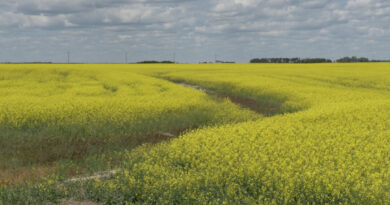Report Finds Eliminating Open-Net Fish Farms in BC Would Come at a Steep Cost to Taxpayers
A report commissioned by the BC Salmon Farmers Association indicates that the proposed federal ban on marine net-pens in British Columbia could result in significant costs to taxpayers and have negative impacts on Canada’s economy, Indigenous communities, and food security.
The report, conducted by economics firm RIAS Inc., estimates that the ban could lead to around $9 billion in unnecessary expenses to taxpayers to close the sector and support companies transitioning to unproven closed containment technology.
It highlights potential losses, including $133.6 million annually to First Nations, the elimination of over 4,500 jobs, and a decrease of 50,000 tonnes of farm-raised salmon.
In response to the ban, the federal government has decided to delay the closure of open net farms until 2029 to facilitate the transition to closed containment systems.
The issue of open-net fish farms off B.C.’s coast has been a contentious topic, with environmental groups and some First Nations expressing concerns about disease transfer to wild salmon from these farms. On the other hand, supporters argue that the risks associated with the farms are unproven and overstated, emphasizing potential economic repercussions if operations are phased out.
The farmers association claims, citing federal and independent scientists, that the farms pose minimal risk and that the removal of the farms would not impact the population of wild Pacific salmon.
Both the association and Coalition of First Nations for Finfish Stewardship are now urging Prime Minister Justin Trudeau to explore a more realistic, cost-effective alternative for transition that achieves the same goals as a ban without causing detrimental effects on the sector, Indigenous rights, and coastal communities in B.C.
The report also notes that B.C.’s salmon farmers have been dedicated to continuous innovation, stating that imposing a transition to unproven technologies in a short timeframe disregards the sector’s willingness to adopt alternative innovations that can achieve similar outcomes.
The release emphasizes the need for innovative solutions tailored to specific coastal characteristics and aligned with the objectives of the Indigenous groups hosting salmon farms in their territories.





